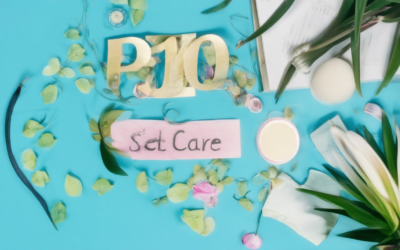Practicing self-love is essential for cultivating emotional wellbeing and improving mental health, allowing individuals to develop a more positive body image, prioritize their own needs and desires, and recognize the importance of self-reflection and introspection. By incorporating simple yet powerful self-love practices into daily life, such as showing oneself love and care, practicing self-compassion, and developing emotional awareness, individuals can foster resilience, confidence, and a deeper understanding of themselves and others. Through embracing self-love, individuals can break free from negative thought patterns, cultivate empathy and compassion, and unlock a more fulfilling and meaningful life, ultimately leading to improved relationships, increased job satisfaction, and a greater sense of overall wellbeing.
Practicing Self-Love: A Comprehensive Guide
Practicing self-love is essential for maintaining emotional well-being, building resilience, and fostering a positive relationship with oneself. By incorporating self-care practices into daily life, individuals can cultivate a deeper sense of self-awareness, acceptance, and compassion.
Embracing Body Positivity
Practice self-compassion by acknowledging and accepting your physical appearance, rather than striving for unrealistic beauty standards. Engage in activities that promote body positivity, such as yoga, meditation, or spending time in nature. Surround yourself with affirming messages, whether through social media, books, or supportive friends and family members.
Self-Love Exercises
Try practicing affirmations, such as repeating positive statements to yourself, to rewire your brain and cultivate a more loving attitude towards yourself. Write down three things you appreciate about yourself each day to help shift your focus away from self-criticism and towards self-love.
Challenging Negative Thoughts
Identify and challenge negative thought patterns that perpetuate self-criticism and low self-esteem. Replace critical inner voices with kind, encouraging ones that foster self-acceptance and growth. Practice mindfulness techniques, such as deep breathing or journaling, to increase self-awareness and calm the mind.
Mindfulness Techniques
Try practicing mindfulness meditation to increase your self-awareness and reduce stress. Take a few minutes each day to focus on your breath and let go of distracting thoughts. This can help you develop a greater sense of calm and clarity, allowing you to approach challenges with a more positive and compassionate mindset.
Nurturing Emotional Intelligence
Develop emotional intelligence by recognizing, understanding, and managing your emotions effectively. Practice empathy and compassion towards others, which can help you better understand and connect with yourself. Engage in activities that promote emotional expression and release, such as creative pursuits or talking to a trusted friend or therapist.
Emotional Intelligence
Try practicing gratitude by reflecting on the things you’re thankful for each day. Focus on the present moment and let go of worries about the past or future. This can help you cultivate a greater sense of appreciation and contentment, leading to increased happiness and fulfillment.
Prioritizing Self-Care
Make time for activities that bring joy and relaxation, such as reading, taking a bath, or listening to music. Prioritize sleep, exercise, and healthy eating habits to maintain physical and mental well-being. Schedule regular self-care appointments, such as massages or spa treatments, to promote relaxation and rejuvenation.
Self-Care Routine
Try establishing a consistent self-care routine to help you feel more grounded and centered. Set aside time each day for activities that nourish your mind, body, and spirit, such as meditation, journaling, or spending time in nature.
Cultivating Gratitude and Appreciation
Reflect on the things you’re grateful for each day, no matter how small they may seem. Practice acts of kindness and generosity towards others, which can help shift your focus away from self-criticism and towards self-love. Celebrate your achievements and accomplishments, no matter how minor they may seem, to boost self-confidence and self-worth.
Gratitude Practice
Try keeping a gratitude journal to help you stay focused on the positive aspects of your life. Write down three things you’re grateful for each day, and reflect on why they’re important to you. This can help you cultivate a greater sense of appreciation and contentment, leading to increased happiness and fulfillment.
Seeking Support and Community
Surround yourself with people who support and uplift you, rather than those who criticize or belittle. Join online communities or forums focused on self-love and personal growth to connect with like-minded individuals. Seek professional help from therapists or counselors if struggling with self-doubt, anxiety, or depression.
Mental Health Resources
Try reaching out to a trusted friend or family member for support, or consider seeking professional help from a therapist or counselor. There are many online resources available, such as hotlines and support groups, that can provide you with the tools and support you need to navigate challenging emotions and experiences.
Fixing Lack of Self-Love: A Comprehensive Guide
Lack of self-love can manifest in various ways, affecting one’s mental health, relationships, and overall well-being.
1. Practice Self-Care
Engage in activities that bring you joy and relaxation, such as exercise, meditation, reading, or spending time in nature.
Prioritize sleep, healthy eating, and regular check-ups with your healthcare provider.
By taking care of your physical and emotional needs, you’ll become more aware of your worth and deserving of love.
Learn more about self-care practices
2. Challenge Negative Self-Talk
Notice when you’re engaging in negative self-talk and challenge those thoughts by reframing them in a positive light.
Replace critical inner voices with kind, encouraging affirmations.
For example, “I am not good enough” becomes “I am capable and deserving of love and respect.”
Discover the power of positive affirmations
3. Set Boundaries
Establish healthy boundaries with others to protect your time, energy, and emotions.
Learn to say “no” without feeling guilty or apologetic.
Remember, setting boundaries is essential for maintaining your emotional well-being and self-respect.
Get expert advice on boundary setting
4. Focus on Your Strengths
Rather than dwelling on weaknesses or flaws, focus on your strengths and accomplishments.
Celebrate your successes, no matter how small they may seem.
Acknowledge your efforts and progress, and remind yourself that you’re worthy of recognition and appreciation.
Unlock the power of strengths-based motivation
5. Cultivate Gratitude
Practice gratitude by reflecting on the things you appreciate in your life.
Write down three things you’re thankful for each day before bed.
Focusing on what you already have, rather than what’s lacking, helps shift your perspective and cultivates a more positive mindset.
Start a gratitude journal today
6. Seek Support
Surround yourself with people who uplift and support you.
Seek out mentors, friends, or family members who encourage and believe in you.
Having a strong support network can help you stay motivated and confident in your journey towards self-love.
Find your tribe and build a support system
7. Forgive Yourself and Others
Let go of grudges and forgive yourself for past mistakes or perceived shortcomings.
Holding onto resentment can weigh heavily on your mental health and prevent you from moving forward.
Practice self-forgiveness and extend kindness to others, just as you would want them to treat you.
8. Develop Emotional Intelligence
Emotional intelligence involves recognizing, understanding, and managing your emotions.
Develop this skill by practicing mindfulness, journaling, or seeking professional help if needed.
Emotional intelligence can help you navigate challenging situations and respond to stressors in a healthier way.
Boost your emotional intelligence
9. Pursue Personal Growth
Invest in personal growth by learning new skills, attending workshops or conferences, or pursuing hobbies.
Engaging in lifelong learning can boost your confidence and sense of purpose, helping you develop a stronger connection with yourself.
Explore personal growth strategies
10. Celebrate Your Worth
Remind yourself daily that you’re worthy of love, respect, and happiness.
Repeat affirmations, write inspiring quotes on sticky notes, or create a vision board to reinforce your self-worth.
Celebrating your unique qualities and strengths can help you develop a more compassionate and loving relationship with yourself.
Join our self-love celebration
Overcoming Lack of Self-Love and Embracing Self-Acceptance
One of the most significant barriers to cultivating self-love is a lack of self-awareness and acceptance. Many of us struggle with negative self-talk, low self-esteem, and a critical inner voice that makes us feel unworthy and unlovable.
How to Fix Lack of Self-Love?
Brené Brown emphasizes the importance of developing a growth mindset and practicing self-compassion. She suggests that we start by recognizing our strengths and accomplishments, rather than dwelling on our weaknesses and failures.
What Are the Signs of Low Self-Esteem and How Can We Address Them?
- Constant self-criticism and negative self-talk
- Lack of confidence and self-doubt
- Difficulty setting boundaries and saying “no”
- People-pleasing and a tendency to prioritize others’ needs over one’s own
To address these signs, we can try the following strategies:
1. Challenge negative self-talk by reframing negative thoughts into positive affirmations.
2. Practice self-care and engage in activities that bring us joy and relaxation.
3. Set healthy boundaries and prioritize our own needs and desires.
4. Seek support from trusted friends, family, or a therapist who can offer guidance and encouragement.
How Can I Develop a More Positive Body Image?
A positive body image is essential for cultivating self-love and self-acceptance. We can develop a more positive body image by challenging societal beauty standards and focusing on our unique qualities and characteristics.
We can start by:
1. Practicing self-acceptance and self-compassion, rather than striving for perfection.
2. Engaging in activities that promote self-care and self-love, such as meditation, yoga, or spending time in nature.
3. Surrounding ourselves with positive and supportive people who celebrate our uniqueness.
4. Challenging negative media messages and societal beauty standards that perpetuate unrealistic and unhealthy beauty ideals.
Strategies for Building Self-Acceptance
Building self-acceptance requires a willingness to let go of perfectionism and self-criticism. Here are some strategies that can help:
1. Practice mindfulness and self-compassion, rather than judgment and criticism.
2. Focus on our strengths and accomplishments, rather than dwelling on our weaknesses and failures.
3. Develop a growth mindset and view challenges as opportunities for growth and learning.
4. Surround ourselves with positive and supportive people who celebrate our uniqueness.
Practicing Emotional Self-Love: A Comprehensive Guide
Emotional self-love is the practice of cultivating a positive and compassionate relationship with oneself, encompassing physical, mental, and emotional well-being. By embracing this mindset, individuals can foster resilience, confidence, and overall happiness.
1. Self-Awareness and Acceptance
Develop a deep understanding of your thoughts, emotions, and behaviors through journaling, meditation, or therapy. Practice acceptance of your strengths, weaknesses, and quirks, acknowledging that they are inherent to who you are. Recognize that everyone has flaws and imperfections, and that self-love is about embracing these aspects rather than trying to change them.
Learn more about self-care practices and how they can help you develop greater self-awareness and acceptance.
2. Mindful Self-Care
Prioritize activities that bring you joy and relaxation, such as yoga, reading, or spending time in nature. Engage in regular exercise, which releases endorphins and improves mood. Establish a consistent sleep schedule and maintain a healthy diet to support overall physical and mental health.
For more information on mindful self-care, check out our article on mindful self-care tips.
3. Boundary Setting and Assertiveness
Learn to say “no” without guilt or apology, setting healthy boundaries with others to protect your time and energy. Practice assertive communication by expressing your needs and desires clearly and respectfully. Set realistic expectations and prioritize your own needs, recognizing that saying “yes” to others may compromise your own well-being.
Read our guide on boundary setting tips to learn more about asserting yourself and prioritizing your own needs.
4. Self-Compassion and Forgiveness
Treat yourself with kindness, understanding, and patience, just as you would a close friend. Practice forgiveness towards yourself and others, releasing negative emotions and moving forward. Cultivate gratitude by focusing on the present moment and appreciating its beauty and simplicity.
Discover the power of self-compassion and forgiveness in our article on self-compassion exercises.
5. Connection and Community
Nurture meaningful relationships with supportive family, friends, and peers. Join social groups or clubs aligned with your interests, expanding your network and sense of belonging. Volunteer or engage in acts of service, fostering a sense of purpose and connection to others.
Learn more about building connections and community in our article on social skills for adults.
6. Personal Growth and Development
Set achievable goals and work towards personal growth, whether through education, skills development, or creative pursuits. Embrace challenges and view failures as opportunities for learning and growth. Celebrate your successes and acknowledge your progress along the way, reinforcing positive self-talk and motivation.
Get started on your personal growth journey with our guide on personal growth strategies.
7. Cultivating Inner Wisdom
Trust your intuition and listen to your inner voice, making decisions that align with your values and goals. Practice mindfulness and presence, staying grounded in the present moment and letting go of worries about the past or future. Develop a growth mindset, recognizing that your abilities and intelligence can be developed through effort and dedication.
Learn more about cultivating inner wisdom in our article on inner wisdom practices.
**How to Love Yourself Psychologically**
Loving oneself is a fundamental aspect of mental well-being, self-awareness, and personal growth. Cultivating self-love can have a profound impact on one’s emotional, psychological, and physical health.
**What Are Some Evidence-Based Strategies to Help You Develop a Healthier Relationship with Yourself?**
- Practice Self-Acceptance: Recognize and accept your strengths, weaknesses, and flaws without judgment. Acknowledge that everyone has imperfections, and it’s okay not to be perfect.
- Develop a Growth Mindset: Embrace challenges and view failures as opportunities for growth and learning. A growth mindset, as coined by Carol Dweck, helps individuals focus on progress rather than perfection.
- Cultivate Gratitude: Reflect on the things you’re thankful for each day, no matter how small they may seem. Practicing gratitude can increase feelings of happiness and well-being.
- Prioritize Self-Care: Engage in activities that nourish your mind, body, and spirit, such as exercise, meditation, or spending time in nature.
- Set Realistic Goals and Expectations: Break down large goals into smaller, achievable steps. Celebrate your successes along the way, and don’t be too hard on yourself when faced with setbacks.
- Surround Yourself with Positive Influences: Spend time with people who support and uplift you, and avoid those who drain your energy.
- Practice Mindfulness: Focus on the present moment, without judgment. Mindfulness techniques, such as meditation and deep breathing, can reduce stress and increase feelings of calm.
- Challenge Negative Self-Talk: Notice when you engage in negative self-talk and reframe those thoughts in a more positive and compassionate light.
- Engage in Activities You Enjoy: Make time for hobbies and passions that bring you joy and fulfillment.
- Seek Professional Help When Needed: If struggling with low self-esteem, anxiety, or depression, consider seeking help from a mental health professional.
- Practice Forgiveness: Let go of grudges and forgive yourself and others.
- Celebrate Your Successes: Acknowledge and celebrate your achievements, no matter how small they may seem.
- Take Care of Your Physical Health: Regular exercise, healthy eating, and adequate sleep are essential for maintaining physical and mental well-being.
- Learn to Accept and Manage Emotions: Develop emotional intelligence by recognizing, understanding, and managing your emotions.
- Cultivate Self-Compassion: Treat yourself with kindness, understanding, and patience, just as you would a close friend.
- Develop a Sense of Purpose: Discover your values, passions, and long-term goals.
- Practice Acts of Kindness: Engage in random acts of kindness, such as volunteering or helping a friend in need.
- Learn to Say No: Set healthy boundaries by saying no to commitments that drain your energy or compromise your values.
- Cultivate Resilience: Develop coping skills and learn to bounce back from adversity.
- Practice Self-Reflection: Regularly take time to reflect on your thoughts, feelings, and experiences.
- Develop a Positive Body Image: Foster a positive body image by focusing on your strengths, abilities, and accomplishments.
- Cultivate Spiritual Connection: Connect with something greater than yourself, whether through faith, nature, or spirituality.

Turning Self-Love into Empathy: A Path to Deeper Understanding
Transforming self-love into empathy requires a shift in perspective, one that acknowledges the interconnectedness of human experiences. By cultivating this empathetic mindset, individuals can foster deeper connections with themselves and others, leading to a more compassionate and harmonious world.
Key Steps to Turn Self-Love into Empathy
- Practice Self-Awareness: Developing a profound understanding of yourself is essential to unlocking empathy. Engage in introspection, exploring your values, emotions, and motivations. Recognize how these aspects influence your relationships with others (Self-Love Psychology).
- Cultivate Compassion: Treat yourself with kindness, just as you would a close friend. Acknowledge your imperfections and limitations, and offer gentle support when needed. This compassionate attitude extends beyond self-care to inform interactions with others (Self-Love Examples).
- Empathize with Others’ Experiences: Put yourself in others’ shoes by actively listening to their stories and perspectives. Seek to understand their struggles, fears, and desires, rather than simply offering solutions (How to Love Yourself and Be Confident).
- Foster Gratitude and Appreciation: Cultivate a sense of gratitude for the people, experiences, and opportunities in your life. This positive attitude helps create a foundation for empathy, allowing you to appreciate the complexities and nuances of others (Why is Self-Love Important).
- Engage in Active Listening: When interacting with others, focus on fully understanding their thoughts, feelings, and needs. Practice mindful listening, avoiding distractions and maintaining eye contact (How to Love Yourself When Depressed).


0 Comments